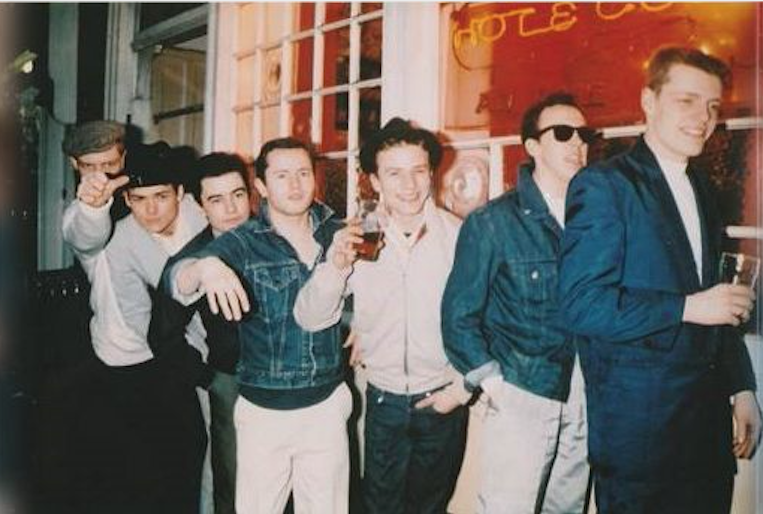Suggs: ‘Protect the magic venues which gave bands their break'
Madness played their early gigs at the Dublin Castle – and have never forgotten the chance this gave them
Friday, 14th May 2021

Madness in their early days at the Dublin Castle
THEY were once the spit and sawdust pubs that served up pints to thirsty workers – and entertained them with a bit of live music too.
But Camden Town’s long history as London’s music mecca will not survive unless urgent action is taken, warns Suggs, the Madness frontman who has guest-edited the New Journal this week.
He said: “Venues rely on people coming in through the doors. Being unable to do that for a year not only has dramatic effects, but it came at a time when we know live music venues are closing at an astonishing rate.
“It’s not me just being a grumpy old man – I can see it with my own eyes. I can see just one third of the venues we used to play at in Camden are still open.”
Suggs added: “The famous names of Camden venues that have been lost in recent years run well into double figures. Places like the Tally Ho, Bull and Gate, The Falcon, The Castle, The Railway Hotel, The Power Bar, The Laurel Tree, The Constitution, The Caernarvon Castle, The Luminaire and the White Horse.
“There were enough venues to get a gig any night of the week. That was a great joy and opportunity for young bands. And when we were in Camden as kids, we could go and see a different band every night. “And you can’t beat playing live as an education – it is the best you can get. You find out very quickly what you are about when you play in front of a crowd, for better or worse. You find out how well it is going and then you can work and improve.”
As part of his guest-edited edition, you can read about how the famous Electric Ballroom and a new venue from Vince Power are looking to buck the trend – and the Camden Walk of Fame celebrates the area’s unique place in the annals of UK music history.

Henry Conlon, landlord of the Dublin Castle, with Suggs
And Suggs recalled how Madness, who have sold nearly seven million records, got their break by playing in a Camden Town pub. He said: “We were given a residency at the Dublin Castle every Wednesday night – that was real turning point. “We could start to adapt the act, work out what songs were working, what was going well, build up a following.”
The Music Venue Trust, which campaigns to raise awareness of grassroots venues and protect those under threat, estimates more than 400 nationwide remain at imminent risk of closure.
Suggs said: “For young bands, and people who work in the industry, it has been a disaster. We have heard horror stories, like road crews becoming homeless – and we know there has been nowhere near enough help from the government, as ever.”
He believes permanent business rate reductions, a review of licensing laws and anti-redevelopment protection orders on venues would help. And he worries that central government tends to skew funding to big institutions which can attract sponsors and charge high prices.
He said: “When we were starting out, there were lots of things going on – there were free festivals put on by the GLC and councils, for example. They gave young bands a chance to play in a professional situation. We need to be looking at multiple ways to solve these problems.”